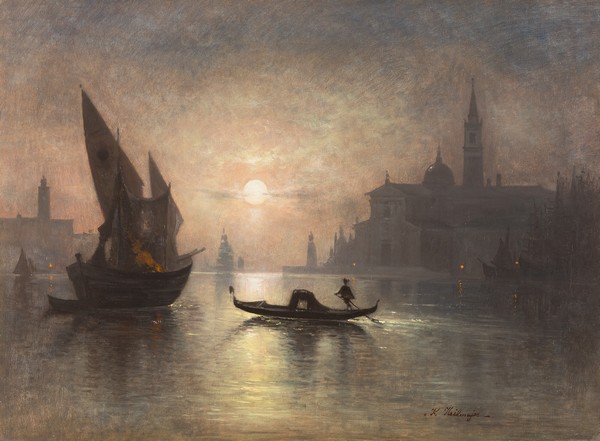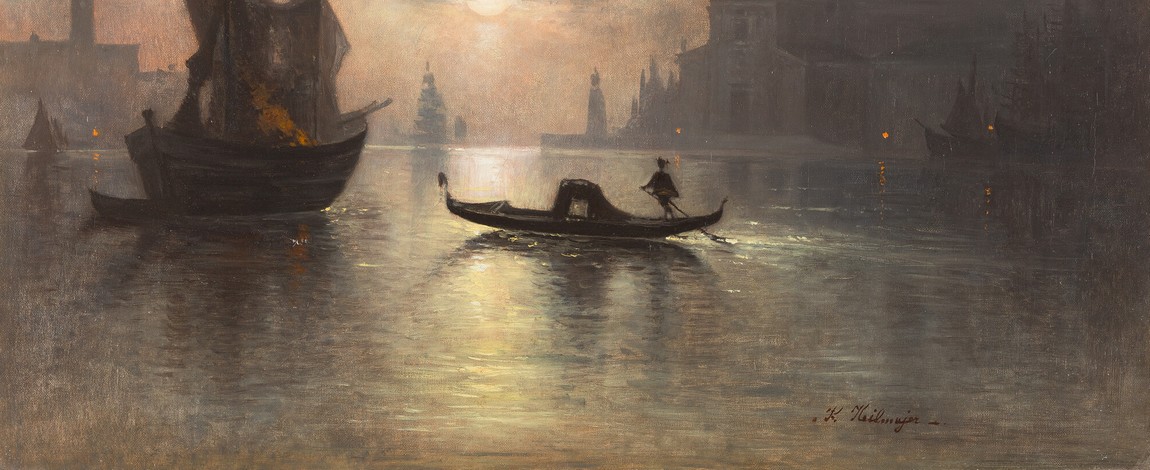
To compile the list of songs written upon the same poem that you can find on this page I turned to memory; since I began to systematize the series not long ago, I had no other way to do it. But memory is not as reliable as I would like it to be. When I arrived at the article about Gondelfahrer, I assumed that I had posted the two versions Schubert had written, and I found that there was only the first one. I mentioned and recommended the second one, only that, perhaps because the post was long enough to add a second song.
I wished that every problem had such an easy solution.
Schubert composed both songs in March 1824, upon a poem by Johann Mayrhofer; catalog numbers are correlative: D. 808 and D. 809. D. 808 is for voice and piano, but for the second version, Schubert thought of four singers: two tenors and two baritones. We dont know the names of the singers in this case, just like we did last week with the Gebet singers, but we can picture any evening with Schubert at the piano and four friends singing this charming piece. The song has similarities with the version for one voice, the most significant being the midnight strokes, but it is a lighter, more playful song, as if the composer was thinking about how he would enjoy doing music with friends. He reworks verses and phrases (except, precisely, the verses of midnight) and significantly lengthens the song.
Unlike D. 808, which was not published until August 1872, Gondelfahrer, D. 809 was immediately published, in August 1824, a further sample of the social component of music at the time. Furthermore, it was premiered in November of the following year at the Musikverein, presumably in one of the chamber concerts, the Musikalische Abendunterhaltungen, presented by members of the society. Today it is difficult to listen to it in recitals, but at least we have some recordings; our version is that of John Mark Ainsley, Jamie MacDougall, Simon Keenlyside, Michael George and Graham Johnson. I hope you enjoy this beautiful song.
Es tanzen Mond und Sterne
Den flücht’gen Geisterreih’n:
Wer wird von Erdensorgen
Befangen immer sein!
Du kannst in Mondesstrahlen
Nun, meine Barke, wallen;
Und aller Schranken los,
Wiegt dich des Meeres Schooss.
Vom Markusturme tönte
Der Spruch der Mitternacht:
Sie schlummern friedlich Alle,
Und nur der Schiffer wacht.
The moon and stars dance
a fleeting, ghostly round:
Who would, to earthly cares,
be forever chained?
You can, in the moonbeams,
now drift, my boat;
and be rid of all barriers,
cradled in the bosom of the sea.
From St. Mark's tower tolls
the proclamation of midnight:
All slumber peacefully
and only the boatman is awake.
(translation by Emily Ezust)















Comments powered by CComment